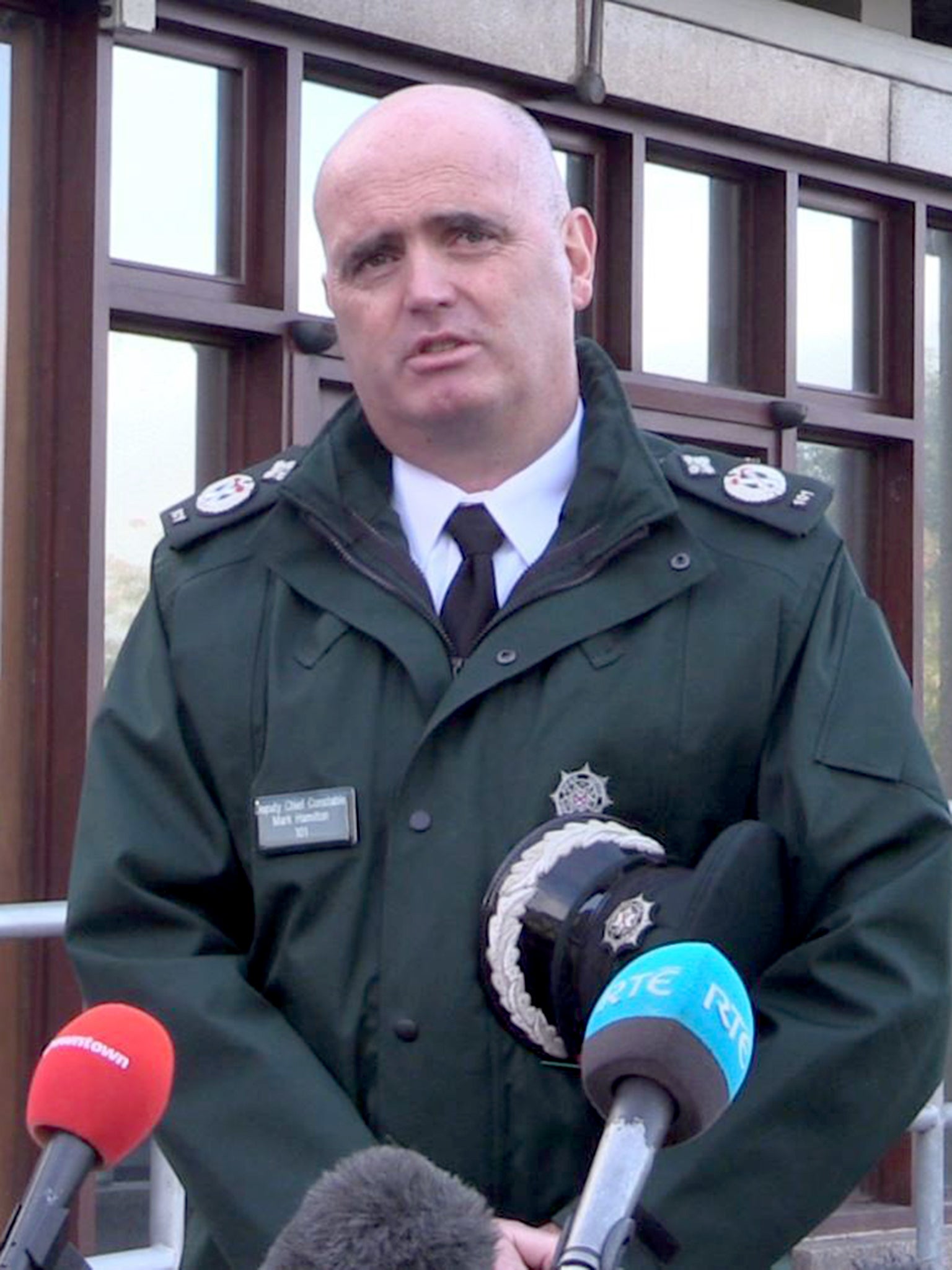Police leaders back making misogyny a hate crime after Boris Johnson rejects mounting calls
Change could ‘prevent things escalating from minor offences up to sexually motivated crime and murder’
Senior police officers have backed making misogyny a hate crime in the wake of Sarah Everard’s murder – in direct contrast to Boris Johnson who has opposed the move, claiming it would “increase the problem”.
The prime minister suggested police should focus on “real crimes”, but police leaders said tackling misogyny could prevent men’s behaviour escalating towards sexual offences and murder.
It is the first time senior police officers have publicly voiced support for the move since the killing of Ms Everard earlier this year.
Calls for the change have been growing since her death sparked scrutiny of “epidemic” levels of violence against women and girls – and the police response.
The prime minister refused to back the move last month, saying officers should “prosecute people for crimes that we have on the statute book”.
“If you simply widen the scope of what you ask the police to do you’ll just increase the problem,” he added.
“What you need to do is get the police to focus on the very real crimes, the very real feeling of injustice and betrayal that many people feel.”
But on Thursday, the national police lead for hate crime said he personally supported adding misogyny to the current list of protected characteristics in hate crime laws.
Mark Hamilton, the deputy chief constable of the Police Service of Northern Ireland, told a conference in London it would not cause officers to be “inundated with bureaucracy”.
“I think this is a welcome addition to how we respond to crime and behaviour in this area,” he added.
“I think it’s a good way of understanding offender behaviour and preventing things escalating from the more minor offences up to sexually motivated crime and murder.”
The senior officer admitted that he initially thought that police had “got enough to do” without making misogyny a hate crime, but added: “I don’t need any more convincing.”
Mr Hamilton said he was speaking in a personal capacity, and that the National Police Chiefs’ Council (NPCC) as a whole was waiting for the results of a wider hate crime review by the Law Commission.

They are looking at whether any change to the law would be based on hatred towards women, or any sex or gender.
“There are some complexities in this, but they shouldn’t outweigh the need to arrive at a position,” Mr Hamilton said.
At least 11 police forces in the UK are already recording misogyny as a hate crime, based on their own definitions, with Nottinghamshire Police becoming the first in 2016.
Craig Guildford, Nottinghamshire chief constable, admitted he had been worried about being “inundated with this stuff”, but the force had only dealt with hundreds of cases.
“It’s not worth worrying about from a chief’s perspective from the volume and the administration,” he told the conference.
“Although we’re not picking up great volume, it’s the confidence that the cops are taking it seriously. It always leads on to being able to nip something in the bud or a more serious offence, which obviously every day of the week we want to investigate.”
Martha Jephcott, who trains Nottinghamshire police officers on how to handle misogyny, said that initial perceptions that they were going to be “arresting people for wolf-whistling” were proven wrong.
“What we actually saw was touching, was stalking – a potential kidnap of a schoolgirl came through as misogyny,” she added.
Violence against women and girls was a major focus of the conference on Thursday, run by the NPCC and Association of Police and Crime Commissioners.
Dame Vera Baird, the victims’ commissioner of England and Wales, asked assembled officers why they were “still not policing it properly” after decades of reports and recommendations to improve.
“May it be because you’re blaming victims of it for crimes committed against them through some undertone of sexism, either born or encouraged by the essentially male brotherhood culture in policing?” she continued.
“Does being a police officer make you more sexist than the ordinary man in the street?
“And if so, don’t you owe it to the public to see that and to change culture around by 180 degrees and start to lead us out of this epidemic of violence against women and girls?”
Martin Hewitt, chair of the NPCC, said he did not agree that there was a “male brotherhood culture” in policing.
“I would agree that misogyny exists across the whole of society, so therefore it’s going to exist in policing,” he told journalists. “Of course we have a strong culture in policing and clearly the majority of police officers are male, but I wouldn’t accept that definition.”
Mr Hewitt said that officers were increasingly calling out misogynistic behaviour among colleagues and that police who violate professional standards or commit offences against women were being “dealt with”.
In his speech to the conference, Mr Hewitt said the relationship between policing and women was under “acute strain” over concerns they were not being protected or offered justice.
“That concern and desire for change has been brought into sharp focus by the murders of Sarah Everard, of Biba Henry and Nicole Smallman, and of Sabina Nessa,” he added.
“Far too many women are asking themselves if the police are on their side in tackling violence against them, and if they can trust us to help them.”
Mr Hewitt said police were reflecting on themselves and “rooting out those who do not uphold our standards”.
Addressing the conference, policing minister Kit Malthouse said that the government wanted violence against women and girls to be a major focus for policing, specifically on rape and sexual offences.
Mr Malthouse described the murder of Ms Everard by a serving officer as a “punch in the solar plexus for policing”, adding: “There is a need for us to redouble our efforts on this area of business.”
Join our commenting forum
Join thought-provoking conversations, follow other Independent readers and see their replies
Comments


Bookmark popover
Removed from bookmarks